2023
First aid
Training young people to support peers dealing with mental health problems
Worldwide, up to 20% of children and adolescents experience mental health problems. As it is often easier for young people to talk to their peers than to adults, training them in how they can support each other in difficult times is very useful. Therefore, together with the Belgian Red Cross First Aid Department, and with funding from the Flemish government (Vlaams Agentschap Zorg en Gezondheid), we developed guidelines on how to train young people to support peers struggling with their mental health.
We first collected the available evidence about mental health risks or protective factors related to how children/adolescents interact with their peers. We found very low-certainty evidence from 155 observational studies and 2 existing systematic reviews about factors such as peer support and friendship quality. In addition, we identified 9 existing systematic reviews with moderate- to low-certainty evidence on the effectiveness of educational programs aimed at social skills and mental health (problems).
 Based on the evidence, a list of 146 recommendations was compiled and expert input was collected electronically from 23 stakeholders, including content experts and mental health peer workers. Next, 2 expert meetings were held to discuss items for which no consensus was reached. The final recommendations were used to develop specific didactic materials for adult trainers, volunteers, and youth workers, aimed at children aged 8 to 10 years.
Based on the evidence, a list of 146 recommendations was compiled and expert input was collected electronically from 23 stakeholders, including content experts and mental health peer workers. Next, 2 expert meetings were held to discuss items for which no consensus was reached. The final recommendations were used to develop specific didactic materials for adult trainers, volunteers, and youth workers, aimed at children aged 8 to 10 years.
The materials, finalized in 2023, are interactive digital packages that can be used at home (audio story), at school (board game), and hobby clubs (story with different work formats). They are freely available via the website of the Belgian Red Cross (materials in Dutch).
Pilot study on first aid blended learning in Rwanda
In 2023, we completed the pilot study on the impact of first aid blended learning together with our colleagues of Rwanda Red Cross Society and the International Cooperation Department of Belgian Red Cross. The aim of the blended learning approach, which combines digital learning and a one-day in-class training, is to provide high-quality basic first aid training to a broad audience in time- and resource-constrained settings.
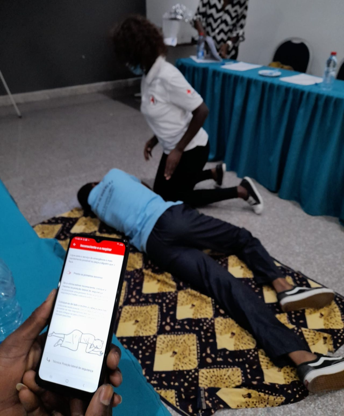 In a first phase in December 2022, we recruited a total of 72 adult laypeople in and around Kigali (Rwanda). Participants were randomly assigned to one of three intervention groups: (1) first aid training with blended learning approach, (2) first aid training with conventional 3-day face-to-face approach, or (3) no first aid training. Before and immediately after the training, all participants were assessed on their first aid-related learning outcomes (knowledge, skills, self-efficacy, willingness to help) and helping behaviour.
In a first phase in December 2022, we recruited a total of 72 adult laypeople in and around Kigali (Rwanda). Participants were randomly assigned to one of three intervention groups: (1) first aid training with blended learning approach, (2) first aid training with conventional 3-day face-to-face approach, or (3) no first aid training. Before and immediately after the training, all participants were assessed on their first aid-related learning outcomes (knowledge, skills, self-efficacy, willingness to help) and helping behaviour.
In a second phase in July 2023, all participants were again assessed on learning outcomes and helping behaviour. More than 6 months after the training, a significant difference in first aid knowledge remained between the first aid blended learning group and the group without first aid training. These preliminary findings were used to calculate the sample size for the actual large-scale study, which is currently ongoing and expected to be finalized in March 2024.
Basic first aid for road traffic injuries in Africa
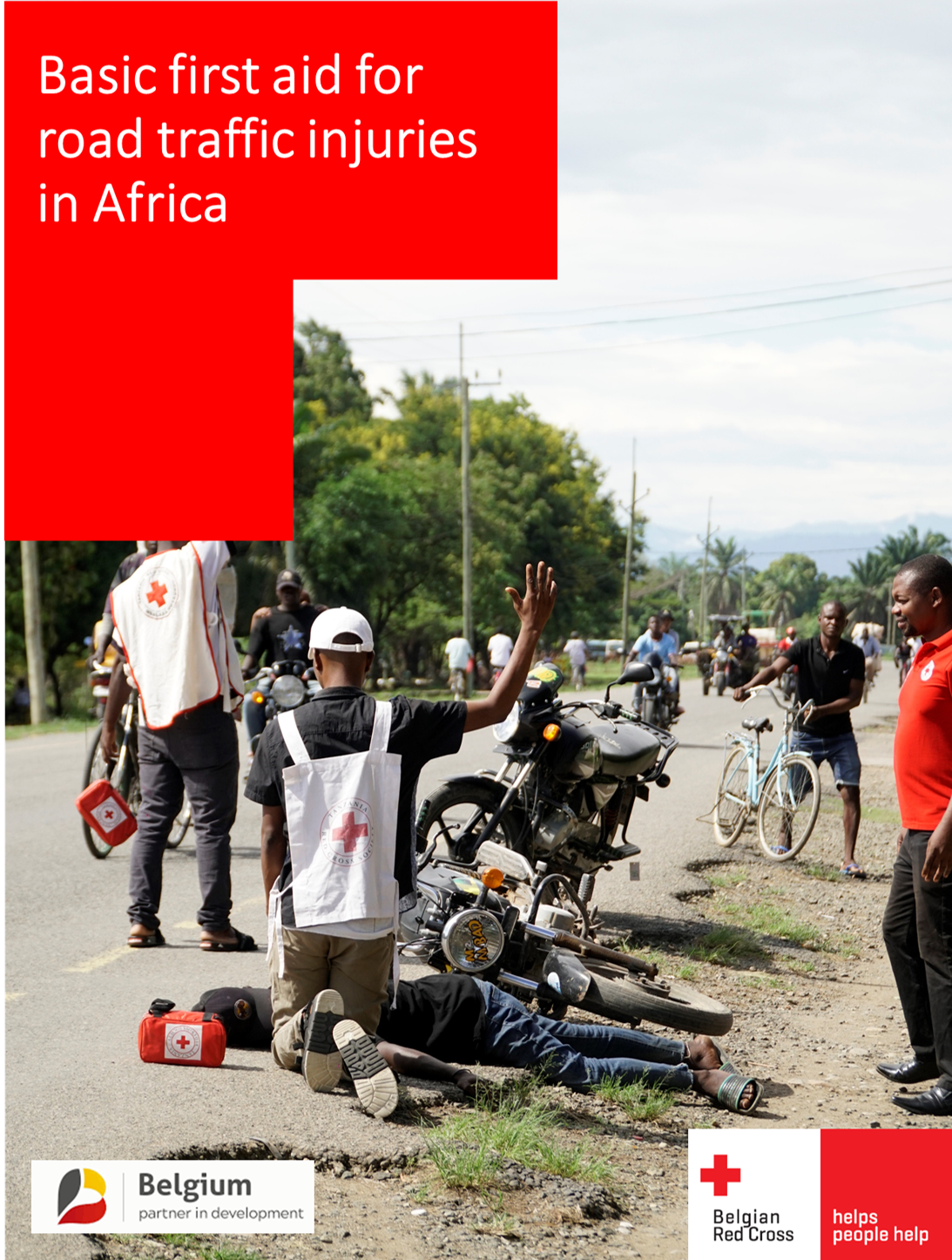 Together with the International Cooperations Department of Belgian Red Cross, we finalised the development of the evidence-based guideline on basic first aid for road traffic injuries in Africa. This guideline aims to provide laypeople without an academic or professional background in (para)medicine with practical recommendations on the prevention, diagnosis and management of different injuries related to road traffic accidents.
Together with the International Cooperations Department of Belgian Red Cross, we finalised the development of the evidence-based guideline on basic first aid for road traffic injuries in Africa. This guideline aims to provide laypeople without an academic or professional background in (para)medicine with practical recommendations on the prevention, diagnosis and management of different injuries related to road traffic accidents.
During a first meeting in 2022, a panel of 10 experts from 9 countries in sub-Saharan Africa, including academics and first aid instructors from the African Red Cross and Red Crescent National Societies, reached consensus on ten research questions and on the content of the training.
During a second face-to-face meeting in February 2023 in Kigali (Rwanda), the panel discussed the draft version of the guideline and its accompanying materials (a small booklet and a training manual). CEBaP presented the underlying scientific evidence and facilitated the process of consensus-building and identifying barriers and facilitators to the implementation of the guideline in the specific local contexts. Based on the feedback of the expert panel, the guideline was further adapted. After an additional virtual feedback round in July and August, the guideline materials were finalised in September 2023. They will be piloted in Burundi in 2024.
Prehospital care guidelines for unintentional injuries: a scoping review
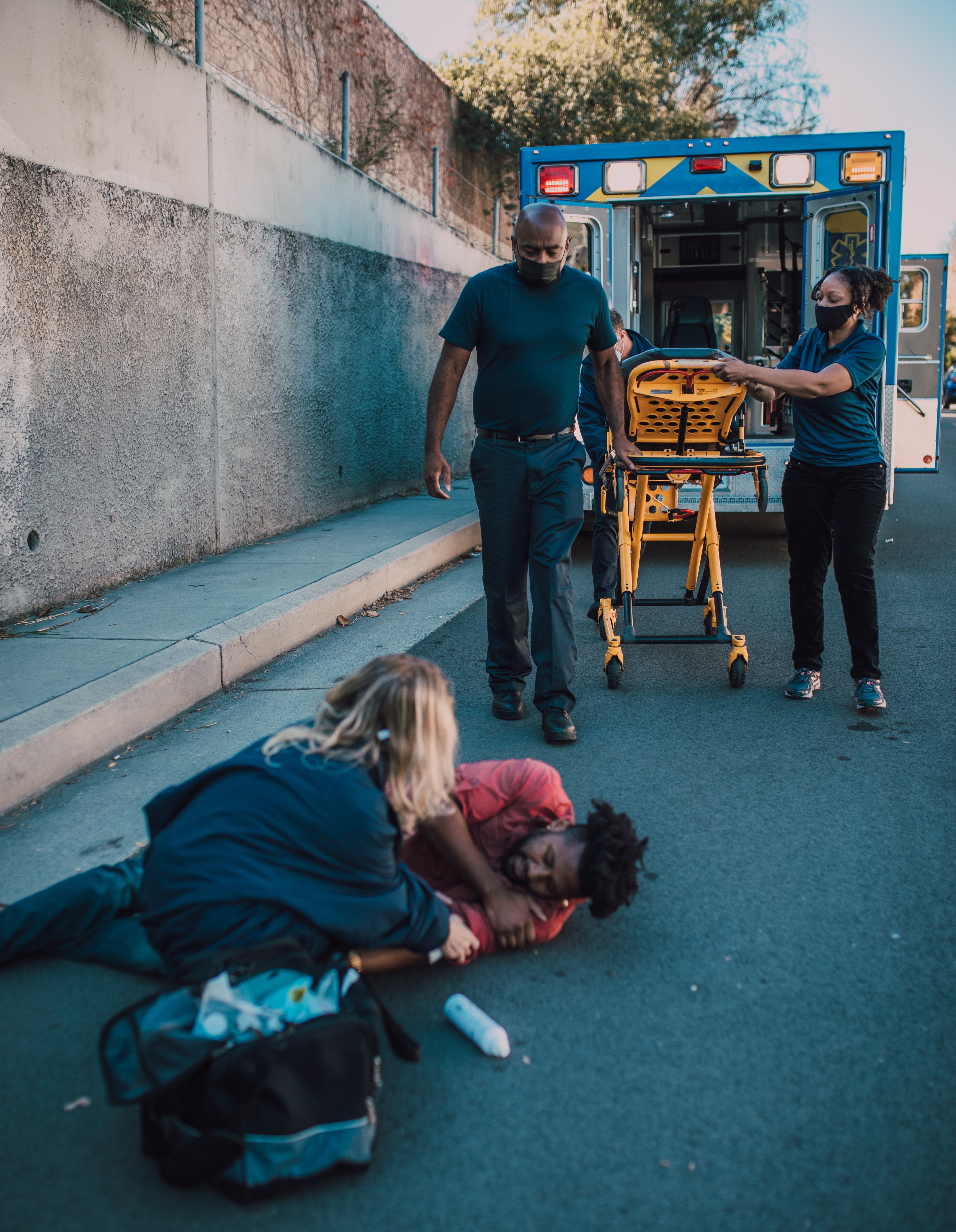 Each year, millions of people around the world die from injuries, and many more develop injury-related disabilities. Good prehospital care has the potential to significantly decrease this burden. To have an overview of existing good-quality prehospital and first aid guidelines for unintentional injuries and to identify remaining gaps, a scoping review was made by the Centre for Evidence-Based Healthcare of the Stellenbosch University (South Africa), in collaboration with CEBaP.
Each year, millions of people around the world die from injuries, and many more develop injury-related disabilities. Good prehospital care has the potential to significantly decrease this burden. To have an overview of existing good-quality prehospital and first aid guidelines for unintentional injuries and to identify remaining gaps, a scoping review was made by the Centre for Evidence-Based Healthcare of the Stellenbosch University (South Africa), in collaboration with CEBaP.
Following a rigorous search in several electronic databases and relevant websites, 58 guidelines with sufficient methodological quality were finally included, covering 32 different injury topics. Of the 58 evidence-based guidelines included in the scoping review, the African First Aid Materials guideline developed by CEBaP (freely downloadable here) was the only guideline that specifically targeted and was adapted to the African context.
Following the scoping review, gaps in clinical practice guidelines for the African context were ranked and prioritized during a virtual stakeholder engagement workshop that was held with first aid responders, paramedics, and emergency service providers from nine African countries. During a subsequent online ranking process, injuries linked to road traffic accidents such as traumatic brain injuries and chest injuries were ranked as having the highest priority for future guideline development by the workshop participants. The results of this project were published in this peer-reviewed paper.
Primary study on the recovery position
Current international first aid guidelines recommend placing victims who are unresponsive but breathing normally, in a side-lying recovery position. However, no details are provided about the exact posture to use for this recovery position, and overall, there is too little evidence, of very low-certainty only, to determine the optimal recovery position. As a consequence, several versions of the recovery position have been taught over the past years.
We conducted a cross-over randomized controlled trial with healthy volunteers placed in two different lateral recovery positions: (1) with an extended lower arm, and (2) with a bent lower arm. The aim of this study was to assess the impact of these two different recovery positions on the perfusion of the lower forearm and on associated comfort. The study was conducted in collaboration with the Antwerp University Hospital. Results are currently being analyzed and will be published soon.
Emergency flowcharts for general practitioners (in training)
For the past two years, CEBaP has collaborated with the KU Leuven Academic Center for General Practice (Academisch Centrum voor Huisartsgeneeskunde) on the update of a publication containing emergency flowcharts aimed at general practitioners in training. Each flowchart was developed by first conducting a systematic literature review, resulting in an evidence summary. In a next step, the evidence and a first proposal of the flowchart were discussed with general practitioners and topic experts. The evidence summaries were developed by general practitioners in training who worked on this publication for their thesis, with methodological support by CEBaP.
The final booklet was launched in spring 2023 and is now available via the bookstore Acco. The booklet also contains links to the theses with further information on the underlying evidence, and to supporting materials such as e-learnings.
Disaster preparedness
Scoping review and evidence summary on disaster preparedness
Disaster preparedness is one of the key topics included in the Belgian Red Cross' research strategy. Due to climate change and the concurrent risk of natural disasters, there is a need for more evidence on effective disaster preparedness. The national Relief Service and International Cooperations Department thus requested CEBaP to perform a scoping review.
We searched for systematic reviews in 4 general scientific databases and in one specific database for evidence-based humanitarian action, with the aim of mapping the available evidence in the field of disaster preparedness and detecting knowledge gaps. This led to the inclusion of 105 systematic reviews on disaster preparedness. 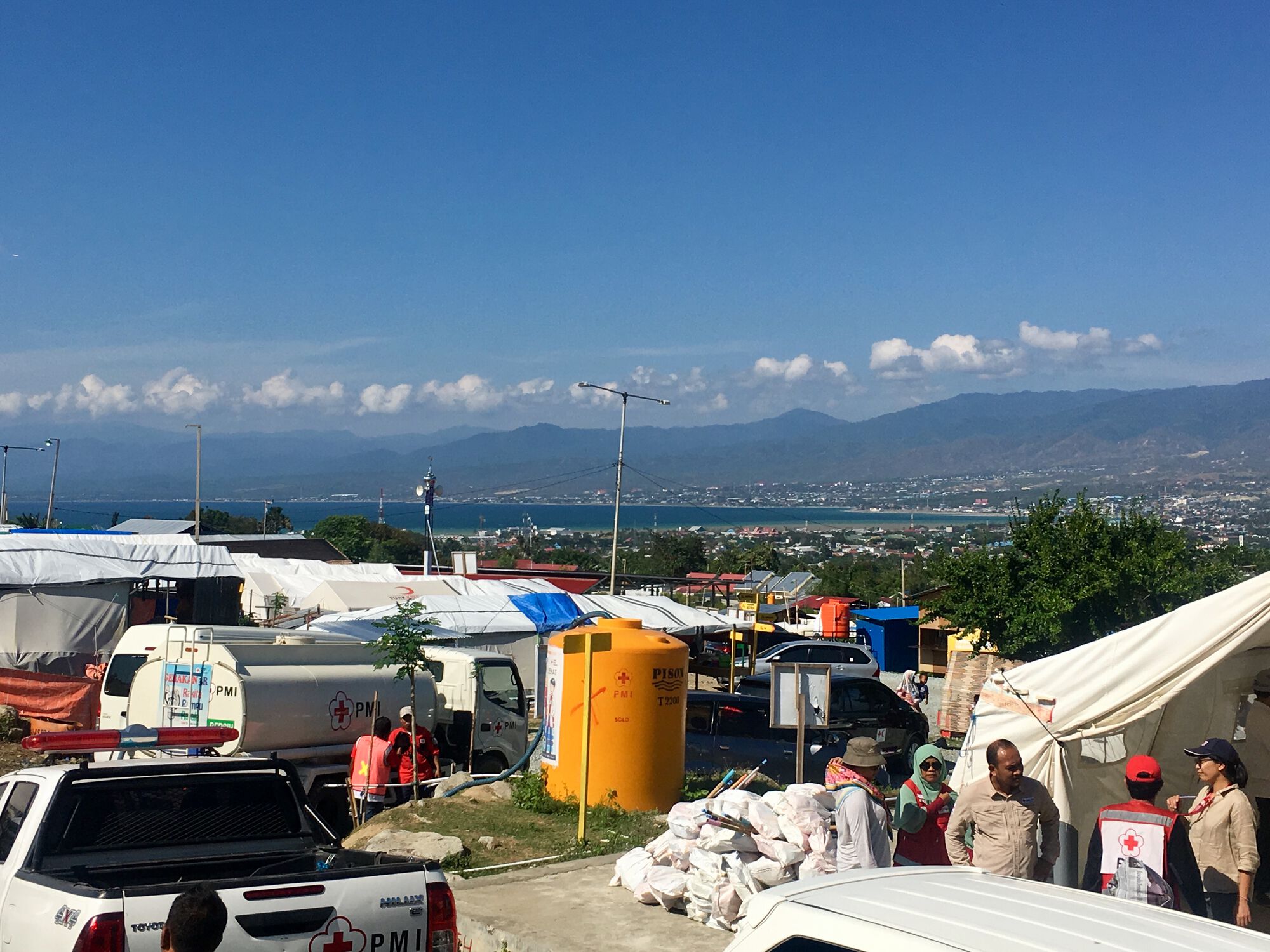 Although about 60% of the included reviews discussed some form of training or education in disaster preparedness, we found that only one review (published in 2021) explicitly searched for educational programs aimed at volunteers and non-governmental organizations (NGOs), which is of particular interest to Belgian Red Cross. Therefore, in the second part of the project, we updated this existing review, using (and slightly modifying) its search strategy to find the most recent literature regarding educational programs on disaster preparedness for volunteering organizations or NGOs. We only found two studies, conducted in China and South Korea, both showing benefit of an educational program on the preparedness for or response to natural disasters. The evidence was of very low certainty.
Although about 60% of the included reviews discussed some form of training or education in disaster preparedness, we found that only one review (published in 2021) explicitly searched for educational programs aimed at volunteers and non-governmental organizations (NGOs), which is of particular interest to Belgian Red Cross. Therefore, in the second part of the project, we updated this existing review, using (and slightly modifying) its search strategy to find the most recent literature regarding educational programs on disaster preparedness for volunteering organizations or NGOs. We only found two studies, conducted in China and South Korea, both showing benefit of an educational program on the preparedness for or response to natural disasters. The evidence was of very low certainty.
Blood donation and transfusion
Systematic review on the transmission of syphilis after (cold) storage of blood (products)
 Currently, in almost every country in the world, all donated blood is systematically screened for syphilis. However, there is an ongoing debate on whether this universal screening is cost-effective, fueled among others by a widespread belief that the syphilis-causing bacterium Treponema pallidum (T. pallidum) cannot survive in blood that is stored cold (or at room temperature) for over 72 hours. To investigate this claim, we conducted a systematic review.
Currently, in almost every country in the world, all donated blood is systematically screened for syphilis. However, there is an ongoing debate on whether this universal screening is cost-effective, fueled among others by a widespread belief that the syphilis-causing bacterium Treponema pallidum (T. pallidum) cannot survive in blood that is stored cold (or at room temperature) for over 72 hours. To investigate this claim, we conducted a systematic review.
We searched 5 databases and retrieved a total of 10 eligible studies, including 9 experimental animal studies and one observational human study. Meta-analyses showed that storing blood that has been artificially infected with T. pallidum at refrigerated temperatures for more than 72 hours before injecting it into rats or rabbits, significantly decreases the number of animals that subsequently developed syphilis, compared with storing the blood for less than 72 hours before injection. However, even if the infectivity of T. pallidum-spiked blood may decrease after 72 hours of cold storage, the possibility for the transmission of syphilis may remain in existence for up to seven days of cold storage in some studies. Conclusions were hindered both by a lack of sufficiently powered studies and a lack of studies in humans.
European project on strengthening voluntary non-remunerated plasma collection capacity in Europe (SUPPLY)
 Plasma-derived medicinal products (PDMPs) such as albumin, immunoglobulins and clotting factors are essential for the prophylaxis and treatment of several disorders. The production of PDMPs currently mostly relies on plasma that is collected outside of Europe, with the United States (US) as the main provider. The European dependency on the US for source plasma entails a considerable risk of shortages, especially during health crises such as COVID-19. Therefore, the Strengthening voluntary non-remunerated plasma collection capacity in Europe (SUPPLY) project aims to prepare recommendations for safely increasing plasma collection in the European Union, to ensure a stable supply of PDMPs without jeopardizing the health of plasma donors.
Plasma-derived medicinal products (PDMPs) such as albumin, immunoglobulins and clotting factors are essential for the prophylaxis and treatment of several disorders. The production of PDMPs currently mostly relies on plasma that is collected outside of Europe, with the United States (US) as the main provider. The European dependency on the US for source plasma entails a considerable risk of shortages, especially during health crises such as COVID-19. Therefore, the Strengthening voluntary non-remunerated plasma collection capacity in Europe (SUPPLY) project aims to prepare recommendations for safely increasing plasma collection in the European Union, to ensure a stable supply of PDMPs without jeopardizing the health of plasma donors.
Within the SUPPLY project, we have published a scoping review that systematically maps the available evidence regarding adverse events and possible health effects in plasmapheresis donors. Ninety-four research articles, one study protocol and 7 registrations were included. We synthesized study characteristics narratively as well as in an interactive evidence gap map.
In addition to the scoping review, we are finalizing a systematic review on the impact of plasmapheresis frequency on donor health, to help define a safe upper limit for plasma donation frequency. In this systematic review, we identified 6 studies, including a randomized controlled trial conducted by Belgian Red Cross.
Last but not least, we published a commentary that critically appraises two recent studies claiming to prove that very high-frequency plasmapheresis (twice a week) has no harmful effects on the donor, arguing that more research is needed while pleading for a precautionary approach.
The scientific underpinning of Patient Blood Management
In 2023, we have published three reviews on Patient Blood Management (PBM), a multidisciplinary, evidence-based and patient-centered approach to optimize the care of patients undergoing transfusion (blood, plasma, platelets):
- In a narrative review, published in Hämostaseologie, we explained how PBM can be scientifically supported by applying the methods of Evidence-Based Medicine.
- In a systematic review, published in PharmacoEconomics-Open, we identified 15 full economic evaluations that provided evidence of the cost-effectiveness of different methods for the preparation, storage and/or selection of platelets intended for transfusion in adults. Eight evaluations of the costs and health effects of pathogen reduction indicate that this technology has an estimated incremental cost per quality-adjusted life year (QALY) ranging from EUR 259,614 to EUR 36,688,323. Pathogen reduction technology eliminates or reduces harmful microorganisms (pathogens) such as bacteria, viruses, or other infectious agents, and is important to ensure safe blood products. For other methods, the evidence was sparse and outdated. Future high-quality research is needed to expand the evidence base and increase confidence in the findings, to inform decision-making.
- In a second systematic review, published in PharmacoEconomics, we investigated whether, in patients with thrombocytopenia (whose platelet count is too low), the administration of thrombopoietin (TPO) mimetics is cost-effective. TPO mimetics are drugs that increase platelet production by stimulating the receptor for the hormone thrombopoietin. We included 18 evaluations from nine different countries and concluded that the cost-effectiveness of TPO mimetics ranged from a dominant strategy (i.e. clinically superior and cost-saving), over a strategy with significant additional costs to gain one more year of good health, to a strategy that is clinically inferior and has increased costs (versus standard of care).
Guideline on blood donor recruitment in sub-Saharan Africa
Together with our colleagues from the International Cooperations Department of the Belgian Red Cross, CEBaP is developing an evidence-based guideline on blood donor recruitment in sub-Saharan Africa. The guideline and accompanying manual will offer recommendations on the most effective blood donor recruitment and retention strategies in sub-Saharan Africa, where blood donation rates are currently too low to meet the demand. Once completed, this guideline will be used to train blood donor recruiters in sub-Saharan Africa, both inside and outside of the Red Cross and Red Crescent Societies, so that blood services in these countries know where to best focus their efforts, particularly in resource-constrained contexts.
In June 2023, a first virtual meeting was held with a panel of 11 experts from academia, national blood services, and African Red Cross National Societies, from six countries in sub-Saharan Africa (Nigeria, Ghana, Rwanda, Burundi, Benin, and Uganda). During the meeting, 14 research questions were defined, for which the best available evidence was collected and synthesised by CEBaP in evidence summaries. Currently, the International Cooperations Department is preparing a draft guideline on the basis of these evidence summaries. In May 2024, the panel will convene in person to discuss and reach consensus on the recommendations.
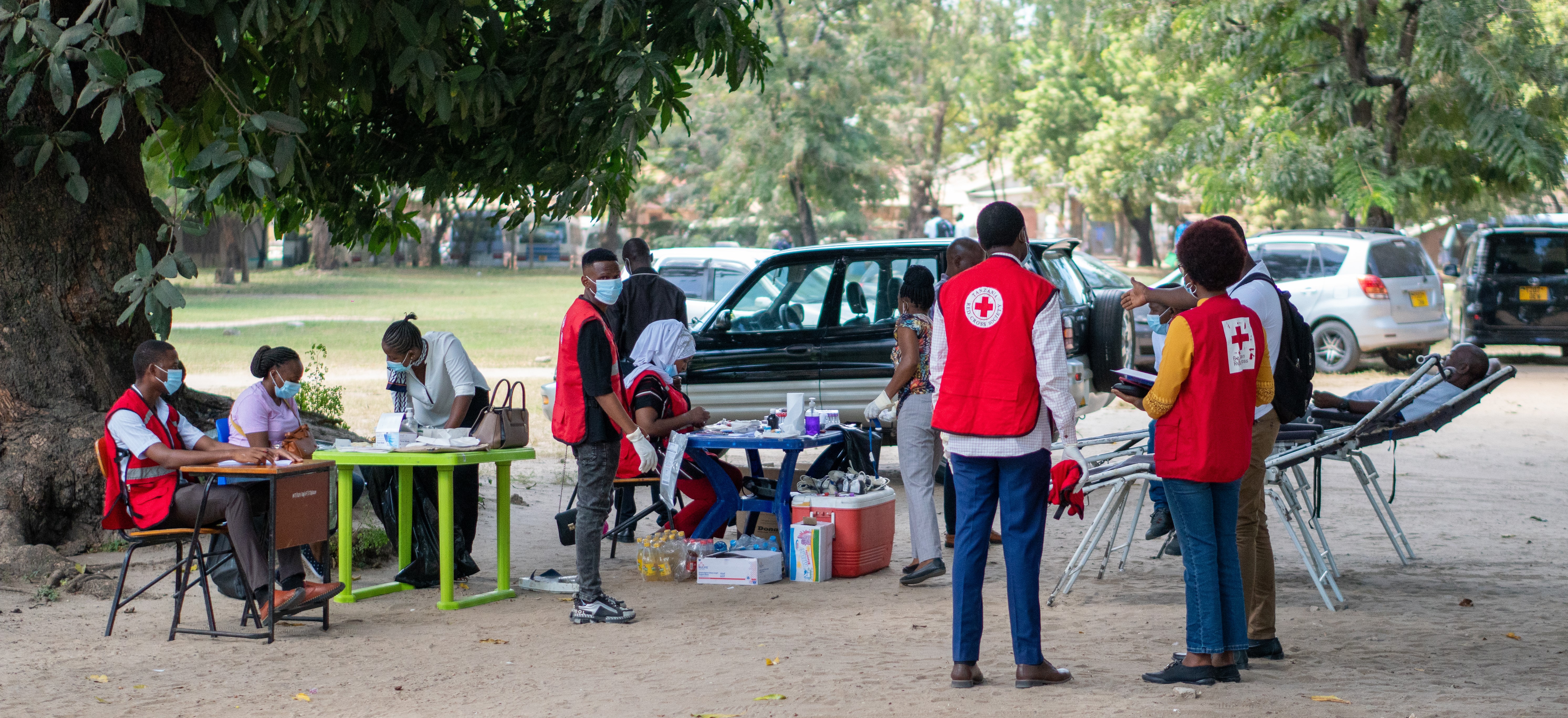
Social and psychosocial care
Systematic review on friendly visiting by a volunteer for reducing loneliness or social isolation among older adults
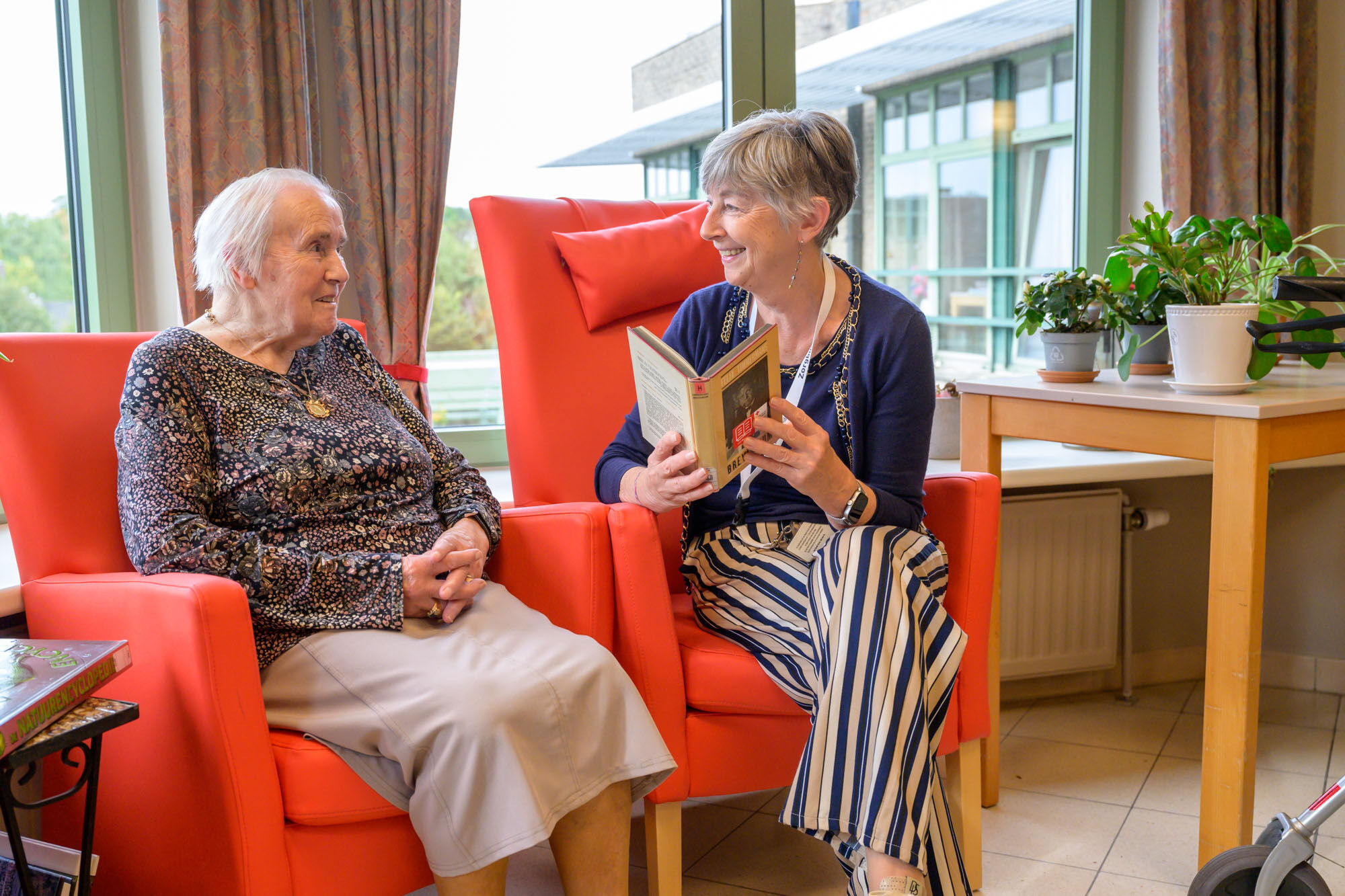 Within the Care Library at Home (In Dutch: Zorgbib aan Huis) project of Belgian Red Cross, volunteers pay regular home visits to isolated older adults, while providing them with library materials. During their regular visits, Belgian Red Cross volunteers also engage in friendly chats, playing games or reading a book together, thereby aiming to combat the loneliness epidemic.
Within the Care Library at Home (In Dutch: Zorgbib aan Huis) project of Belgian Red Cross, volunteers pay regular home visits to isolated older adults, while providing them with library materials. During their regular visits, Belgian Red Cross volunteers also engage in friendly chats, playing games or reading a book together, thereby aiming to combat the loneliness epidemic.
To provide a scientific basis for these activities, CEBaP performed two evidence reviews in 2018: one on the effect of friendly (home) visiting by a volunteer on loneliness and social isolation, and one on book reading for physical and mental health in older adults.
The Campbell Collaboration, an international social science research network that produces high-quality, open and policy-relevant evidence syntheses, showed an interest in publishing these evidence reviews as full systematic reviews.
In 2023, we finalized the full systematic review on the effect of friendly visiting by a volunteer on loneliness and social isolation in older adults. In this review, we found 13 relevant studies comparing friendly visiting by a volunteer to no friendly visiting, involving 470 older adults in total. The evidence from these studies is very uncertain about the effect of friendly face-to-face visiting by a volunteer on improving loneliness, social isolation, depressive symptom experiencing, life satisfaction and mental health-related outcomes in older adults, and thus higher quality research on this topics is necessary. The review was published in Campbell Systematic Reviews.
Update of the training manual on group interventions for training volunteers of the Social Intervention Service
Volunteers of the Social Intervention Service of the Belgian Red Cross are involved in supporting people who have been exposed to a shocking, (potentially) traumatic event. In 2023, the manual on group interventions that is used to train these volunteers has been updated.
CEBaP contributed to the current update by searching the available literature to investigate which brief psychological group interventions are effective in preventing the development of adverse reactions to a shocking event. Volunteers previously used a type of crisis intervention called psychological debriefing (more specifically the model of Critical Incident Stress Debriefing), involving a detailed recounting of the shocking event. However, the available scientific evidence did not support the notion that (group) psychological debriefing is effective at reducing post-traumatic stress symptoms, depression, anxiety, or improving quality of life. Furthermore, it was found that existing guidelines do not recommend or even explicitly advise against psychological debriefing.
The best available evidence was discussed with a group of experts (with academic and/or practical experience) to reach a consensus on recommendations for practice. Based on the evidence and expert discussion, the panel reached a consensus that the focus of the group intervention should be shifted to mapping current experiences and problems regarding the event (rather than reconstructing the event) and promoting peer support. The training manual was updated accordingly.
